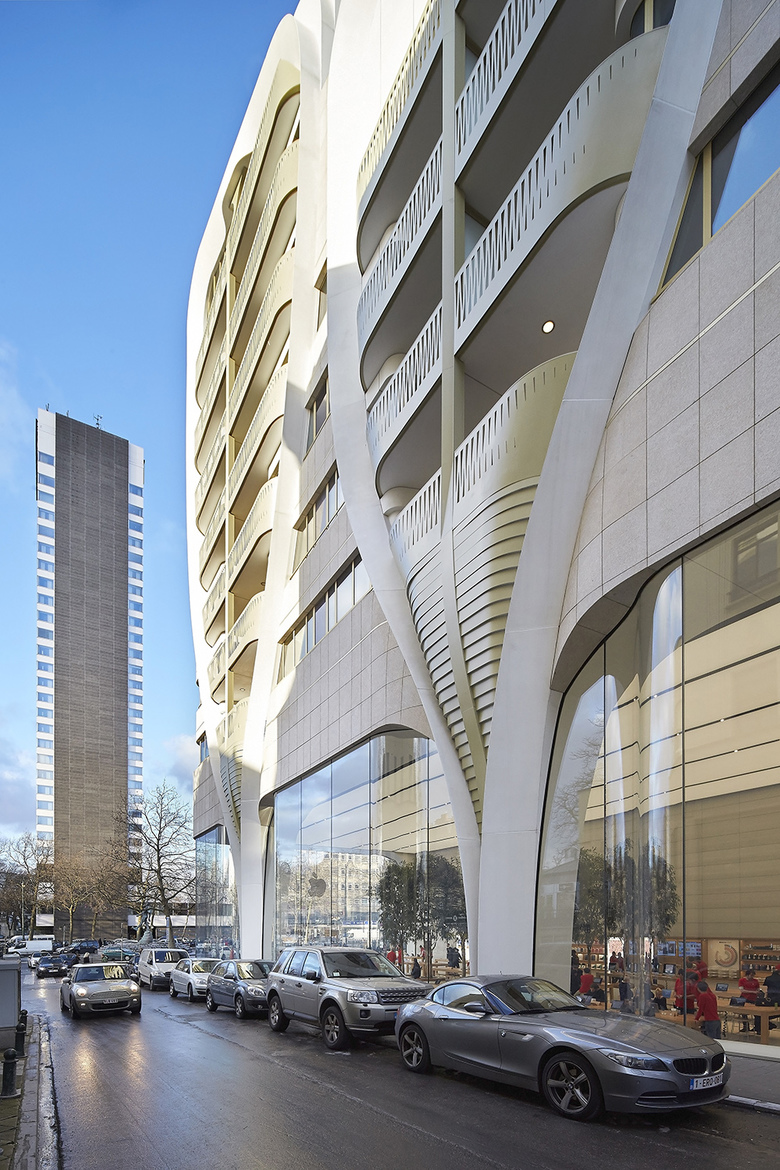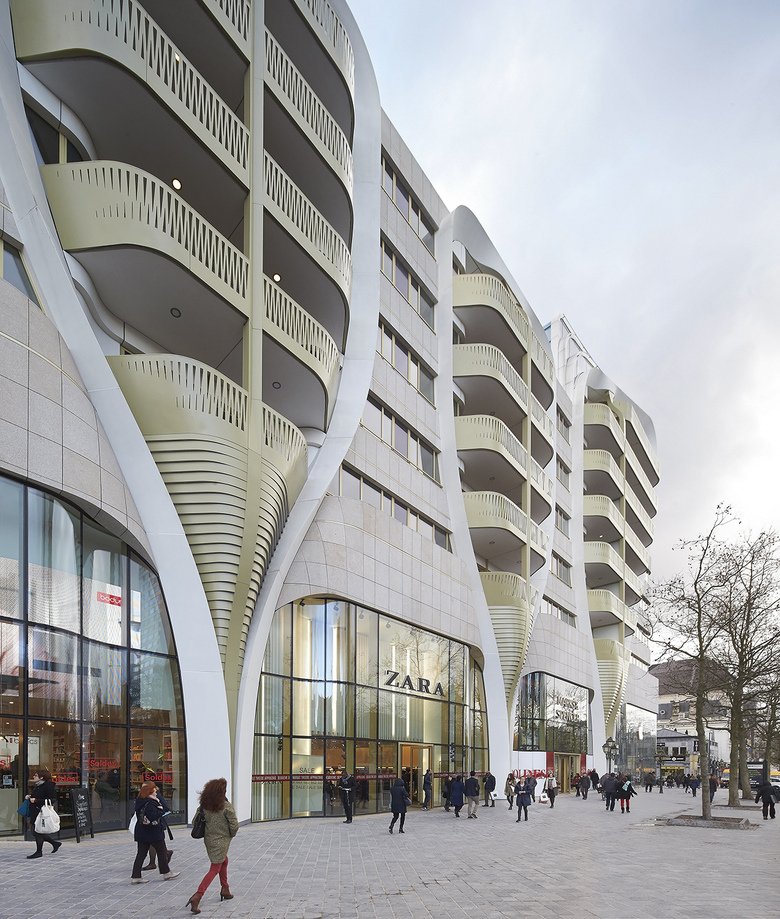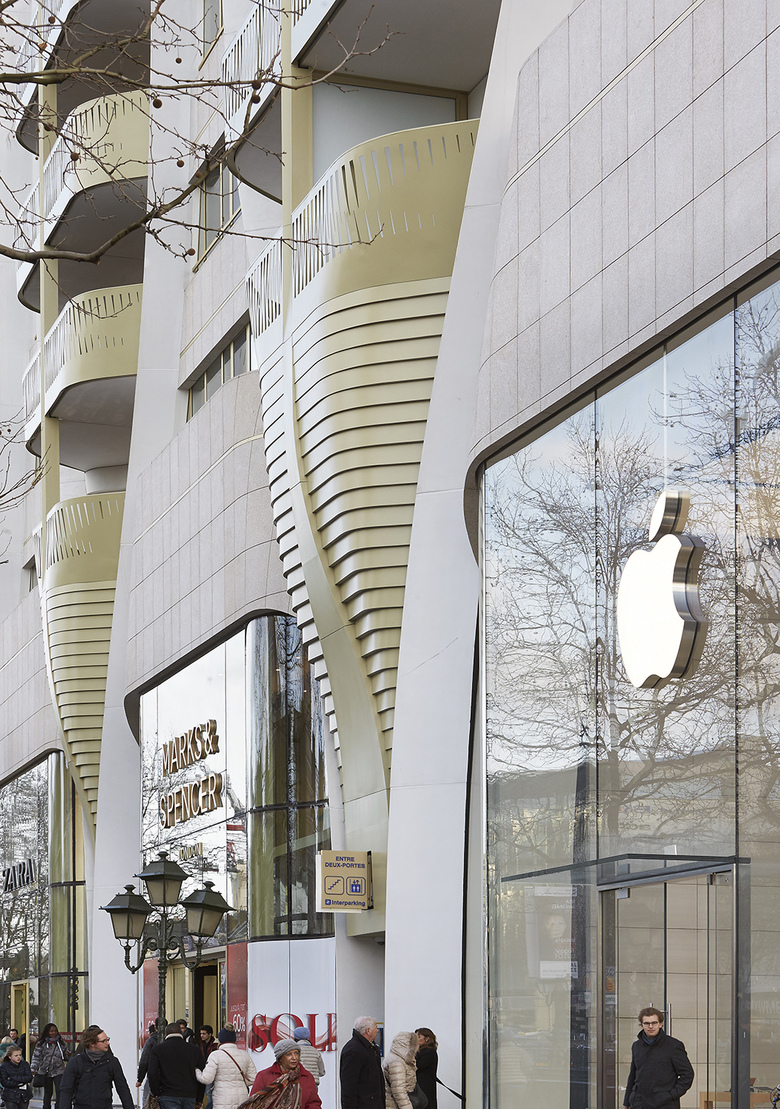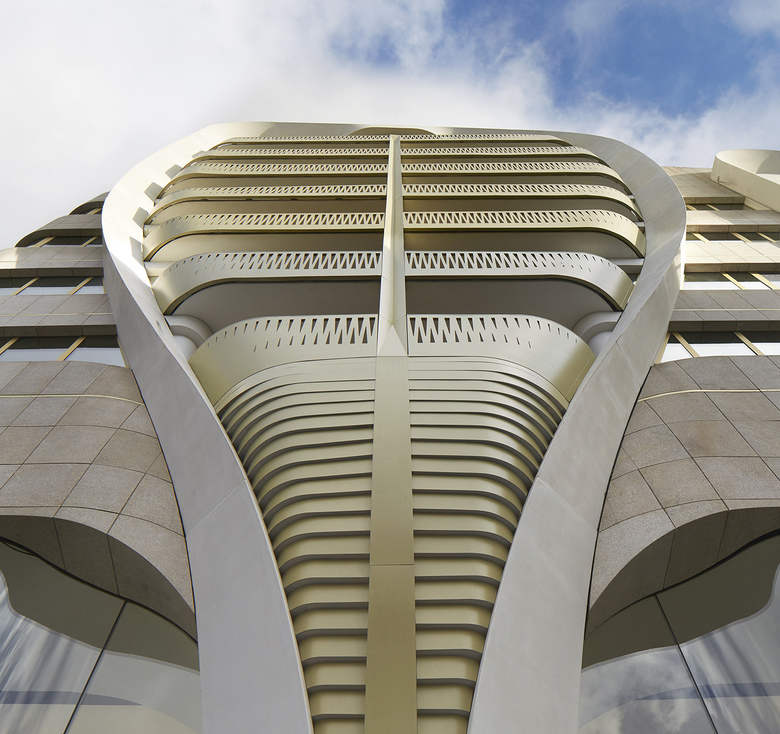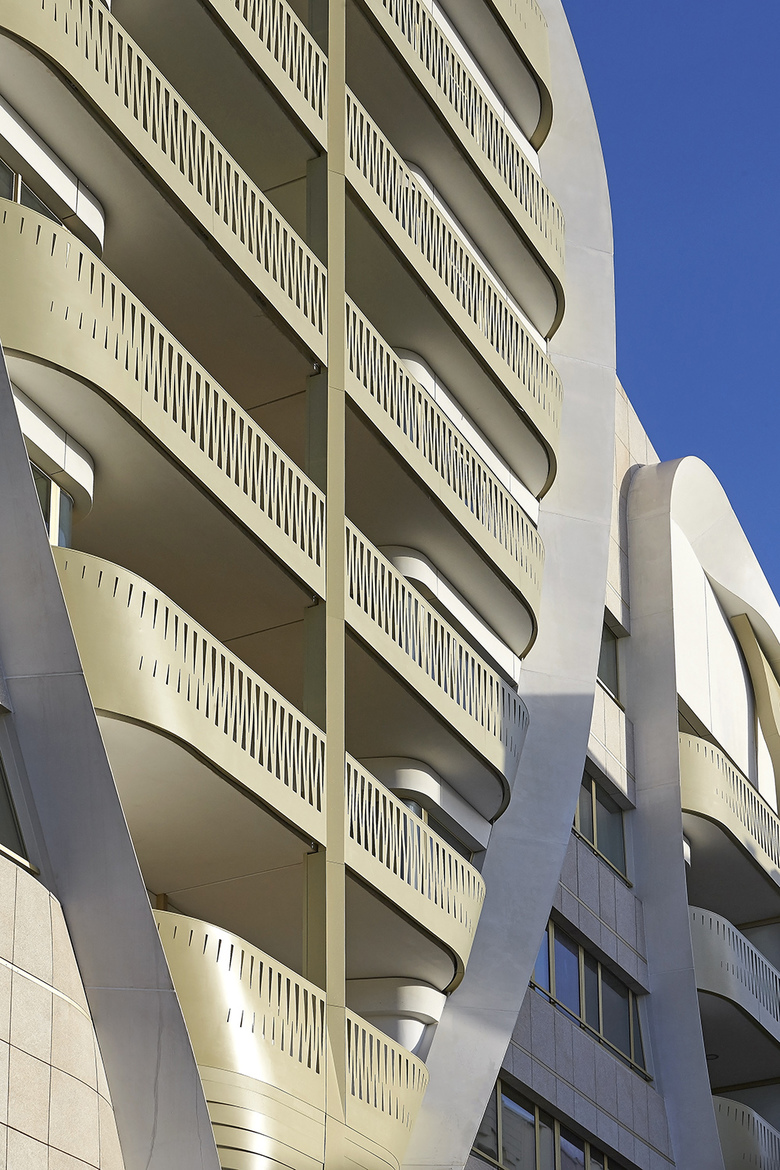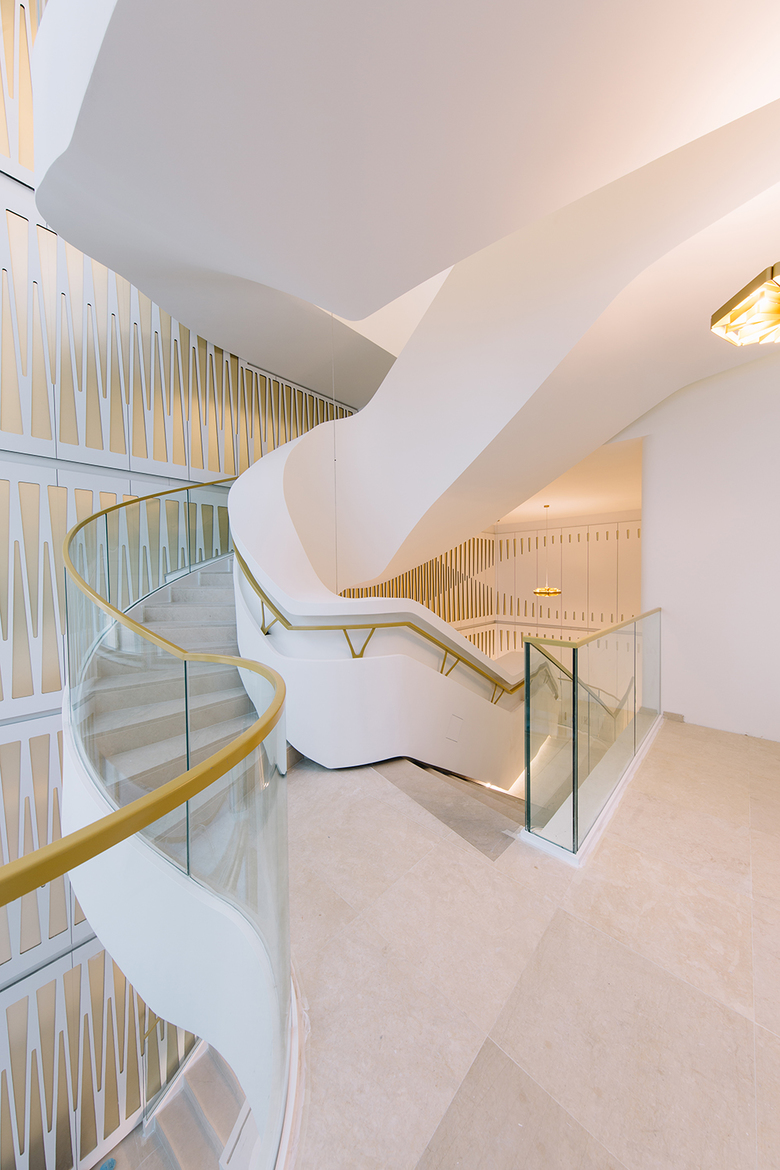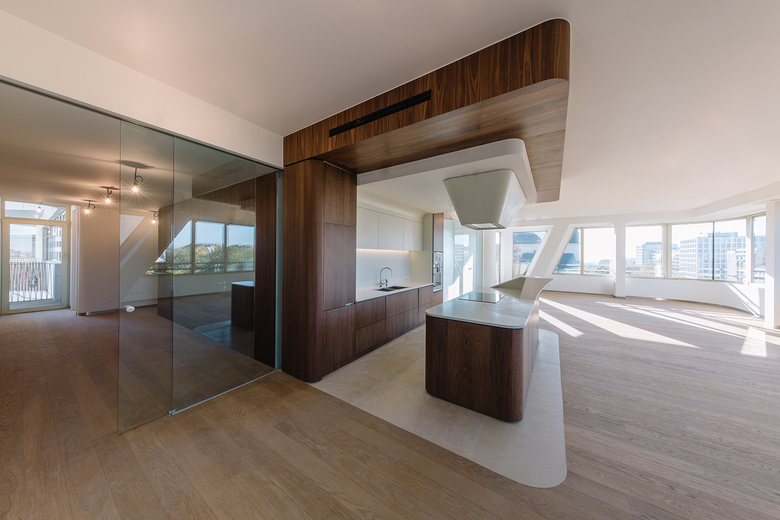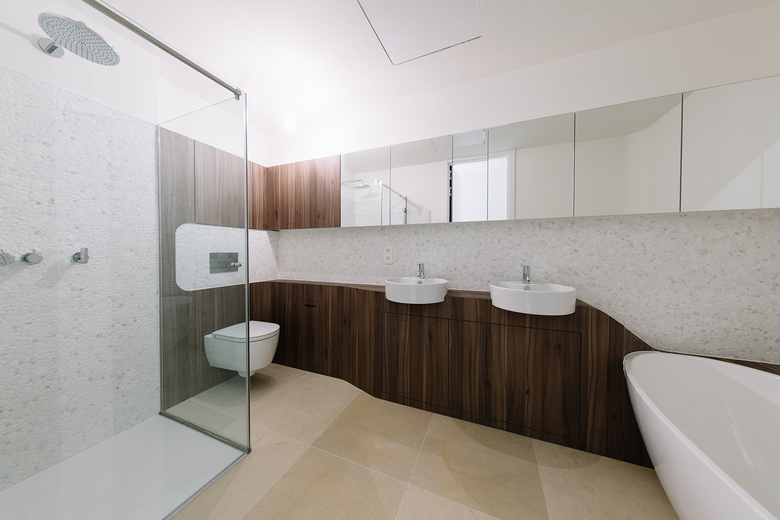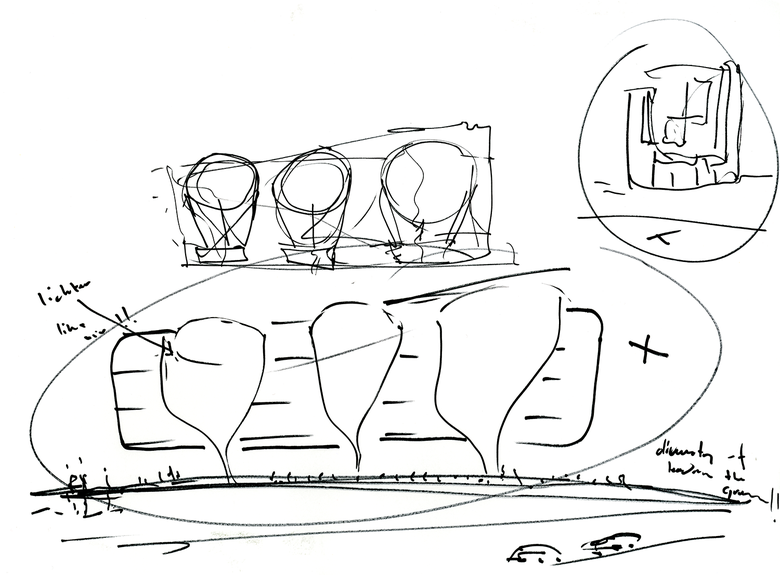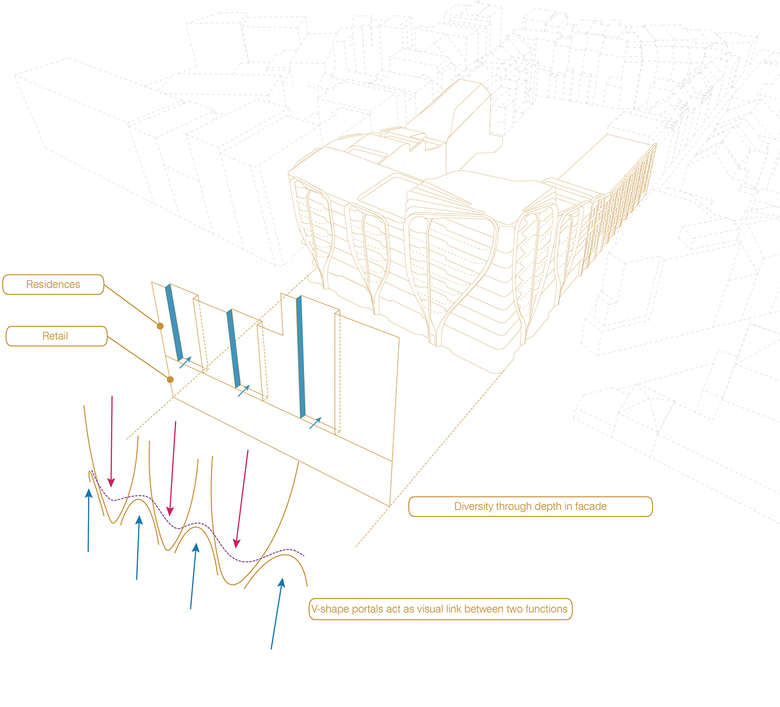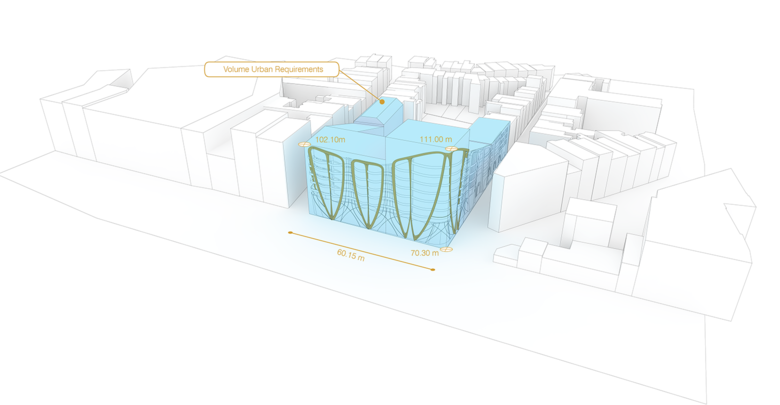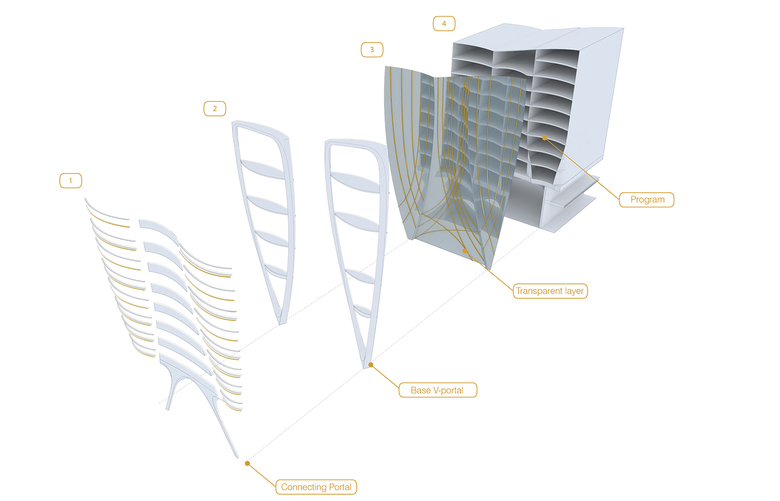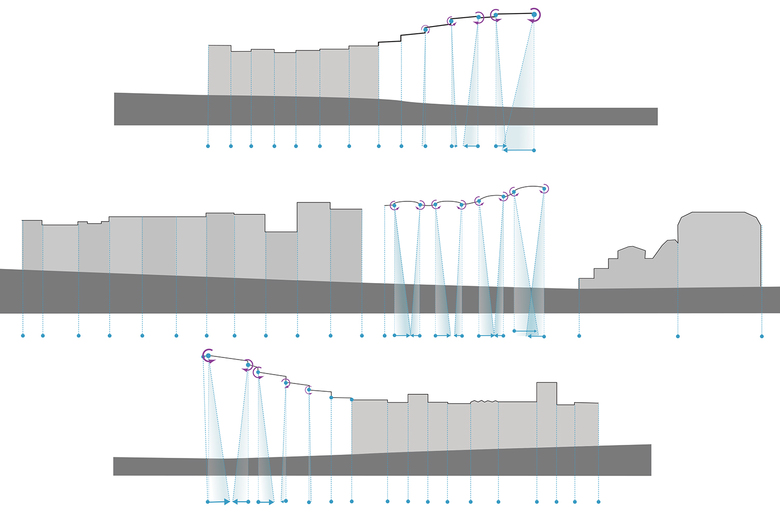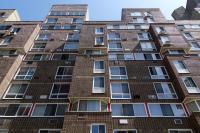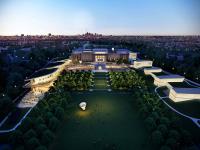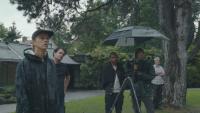Le Toison d’Or
Brussels, ベルギー
Ben van Berkel / UNStudio’s first completed project in Belgium – ‘Le Toison d’Or’ - has been realised in Brussels.
Designed for ProWinko and in collaboration with Belgian architects Jaspers-Eyers, Le Toison d’Or is a hybridisation of a traditional building-block typology and a mixed-use development with a retail podium.
Located on the Avenue de la Toison d'Or between two historical gates (the Porte Louise and the Port de Namur), the mixed-use complex integrates into the urban fabric of its surroundings, whilst simultaneously merging a retail and residential programme.
Le Toison d'Or contains 72 apartments (from 50 to 750 m2), 13,000 m2 of commercial space, a 1040 m2 crèche, 330 parking spaces and an elevated city garden of 2,950 m2.
In order to avoid the monolithic qualities common to block structures, the façade of Le Toison d’Or is broken up by means of variations in texture, depth and the repeating rhythm of a series of curved vertical frames. These frames serve to enclose the balconies of the apartments on the upper floors, whilst also facilitating the large display windows of the retail units.
Ben van Berkel: “It was important that the retail units be as open and light and possible. We wanted to contrast this with the apparent solidity of the upper floors, to create the illusion that the vertical balloon-like frames were carrying the building; as if the whole block almost has the potential float above the avenue.”
Ben van Berkel: “In architecture we tend to favour abstraction and to avoid figuration. But on the street facade of the Toison d’Or building we wanted to investigate the space between the abstract and the figurative, to create moments of tacit allusion to the pictorial.”
In contrast to the vertical articulation of the street facade, the facades surrounding the elevated courtyard garden follow a horizontal arrangement. Here generously proportioned balconies provide a more tranquil experience of city life.
To access the apartments visitors and residents enter the building from the street side, where a large sculptural staircase leads them up to the main reception lobby, which is located towards the rear and elevated above the two retail levels. From here they can continue to further lobby areas furnished with informal seating, where the elevators to the apartments are also located.
The apartments in Le Toison d’Or vary in size from small to large, enabling a varied demographic of city residents. To ensure high levels of daylight in the interiors, the floor to ceiling heights reach at least 2.7 meters in living areas. For the apartments situated along the Avenue de la Toison d’Or, this height increases to more than 3 meters. Open kitchens in the form of large furniture elements create an informal entertaining space in the heart of the apartments and determine the circulation through the spaces.
Le Toison d’Or has been developed with high standards of sustainability. Main features are the excellent thermic isolation of the façade (including triple glazing), a high standard of acoustic insulation, an inventive cogeneration installation system for both the apartments and the retail units and the use of glass-fiber reinforced concrete.

